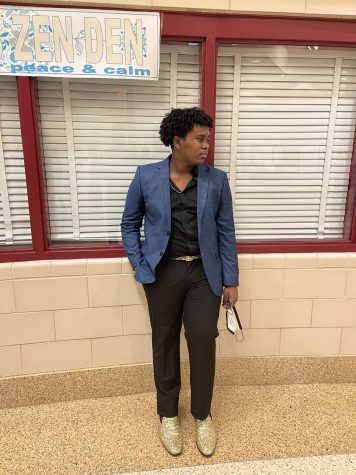How Peer Pressure Affects Teens
October 29, 2021
Are you currently doing something in your life that you would rather not be doing? Do you ever feel like you’re not controlling your own decisions?
If you answered “yes” to either of these questions or know people who would, it is not surprising as this is the reality for teenagers who face strong peer pressure from the people around them. Peer pressure, whether you’re aware of it or not, is the result of being forced or coerced into doing something without actually wanting to, according to the dictionary. But it’s more complex than that. At the root of it, teens do some outlandish things to impress people or earn popularity among a group they want to fit in with. Some really have no choice because of the fear they will be left out or ostracized by their peers.Outlandish things as recent as the “Devious lick” Tik-Tok challenges for ways to get likes and quick fame.
Conditions such as depression and anxiety can be caused by the pressures put on teens. Pressures teens face at school in areas like grades and the workload in classes, fitting in socially, and dealing with peer pressure. Sometimes teens fall into scenarios they are not ready for due to peer pressure and sometimes start to do things they regret later on. For those who do make these mistakes, they often feel, at the time, that the ends justify the means and this convinces them to do things they wouldn’t do in the first place.
According to Juliana Menasce Horowitz and Nikki Graf of Pew Research, in their article “Most U.S. Teens See Anxiety and Depression as a Major Problem Among Their Peers”, they reveal that about 7 in 10 teens feel the need or pressure to fit into social groups in some way. This longing to fit into social groupings allows them to be led astray easily and fall to peer pressures that can lead into poor choices including dangers such as drug and alcohol abuse. Menasce Horowitz and Graf also concluded that teens themselves see drug and alcohol addictions as a problem among their peers.
Drug and alcohol abuse are both examples of worst case scenarios that peer pressure can lead to and relate to the issue of teens wanting to fit in with certain social groups.
To help prevent things like this from happening high school communities should do all that they can to help teens stop listening to what others think is best for them. Schools should work to help students make better choices and not allow themselves to be coerced into doing frivolous things just to be seen as having a higher social standing. The goal for schools – and families – should be to help young people learn how to stop allowing themselves to be pushed into doing things they aren’t comfortable with.
While this problem seems like one that simply cannot be solved, there are ways to help prevent it at the root. Things like being more comfortable with saying no, finding more friends with similar values as you, as well as asking yourself how you feel about the situation at hand and would you do this by yourself without influence from others.











































